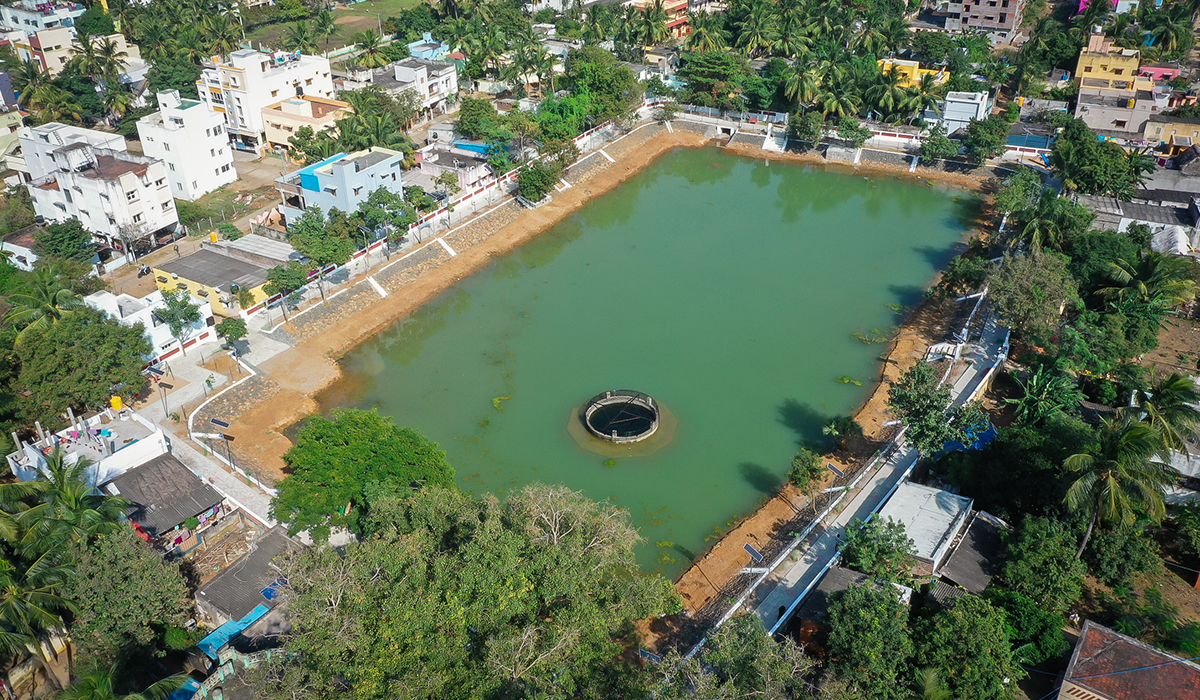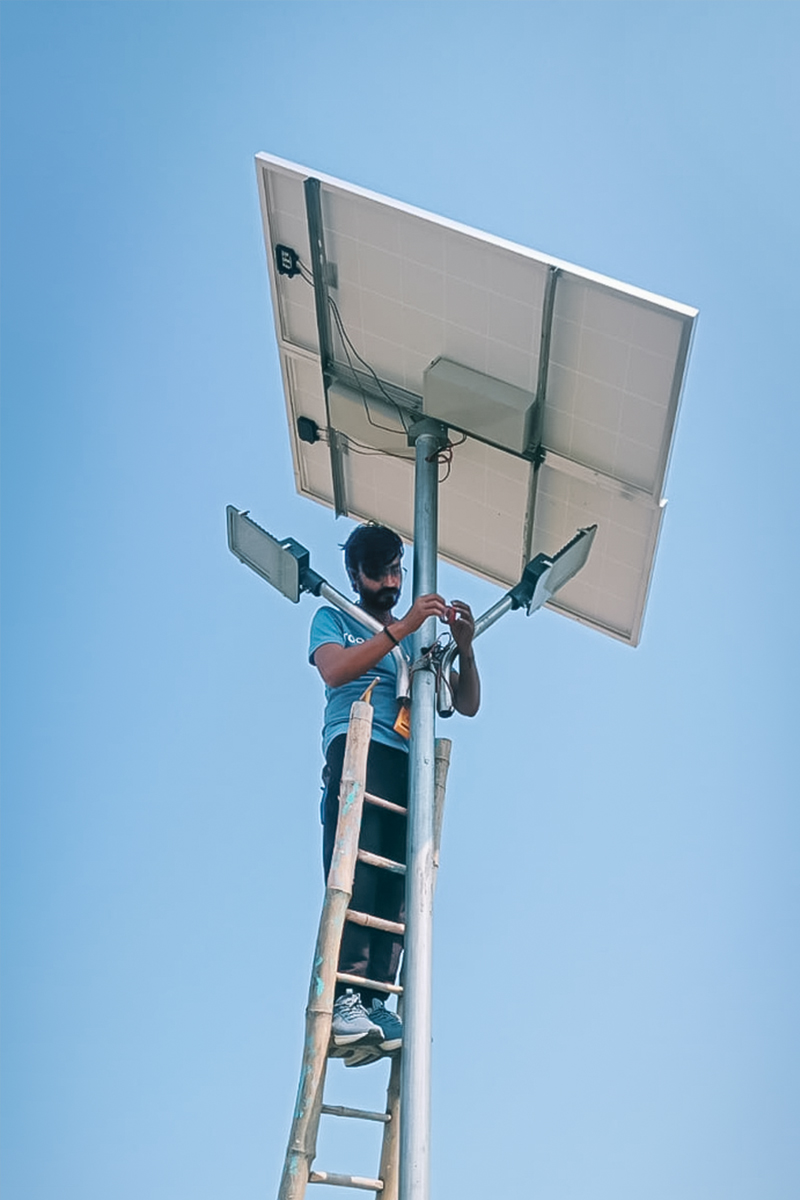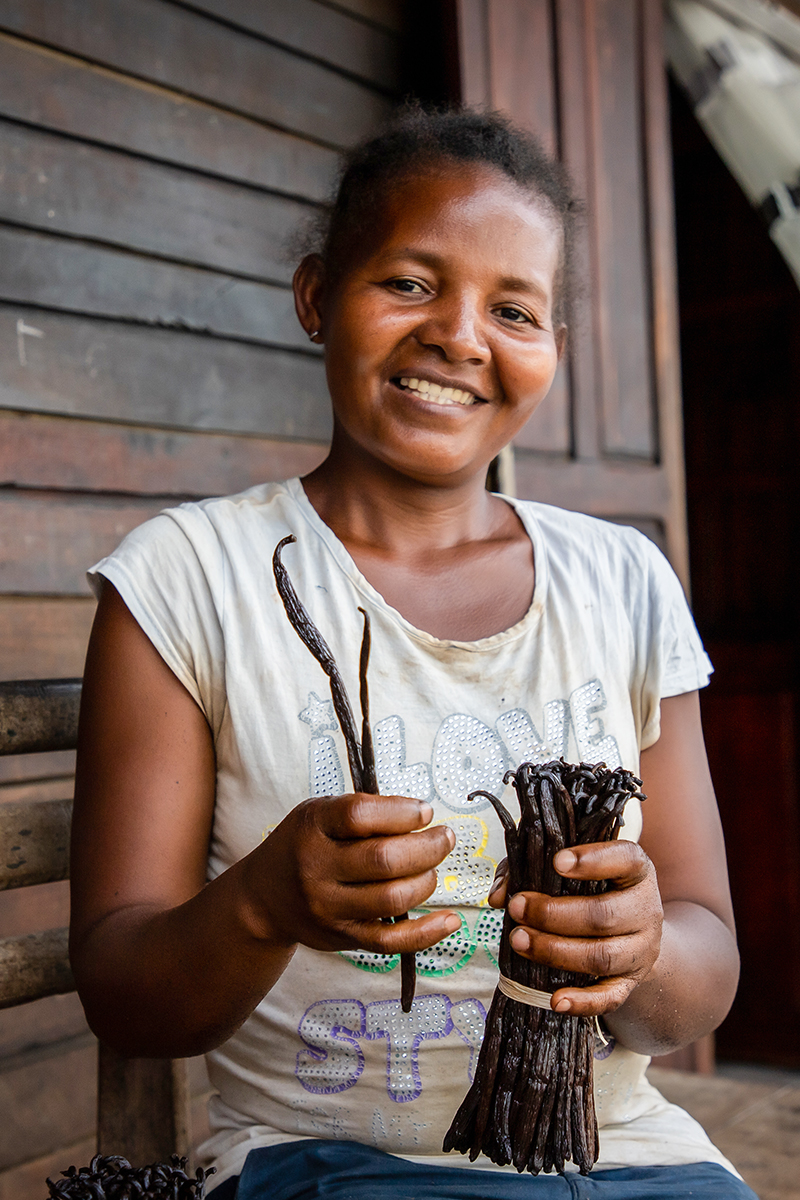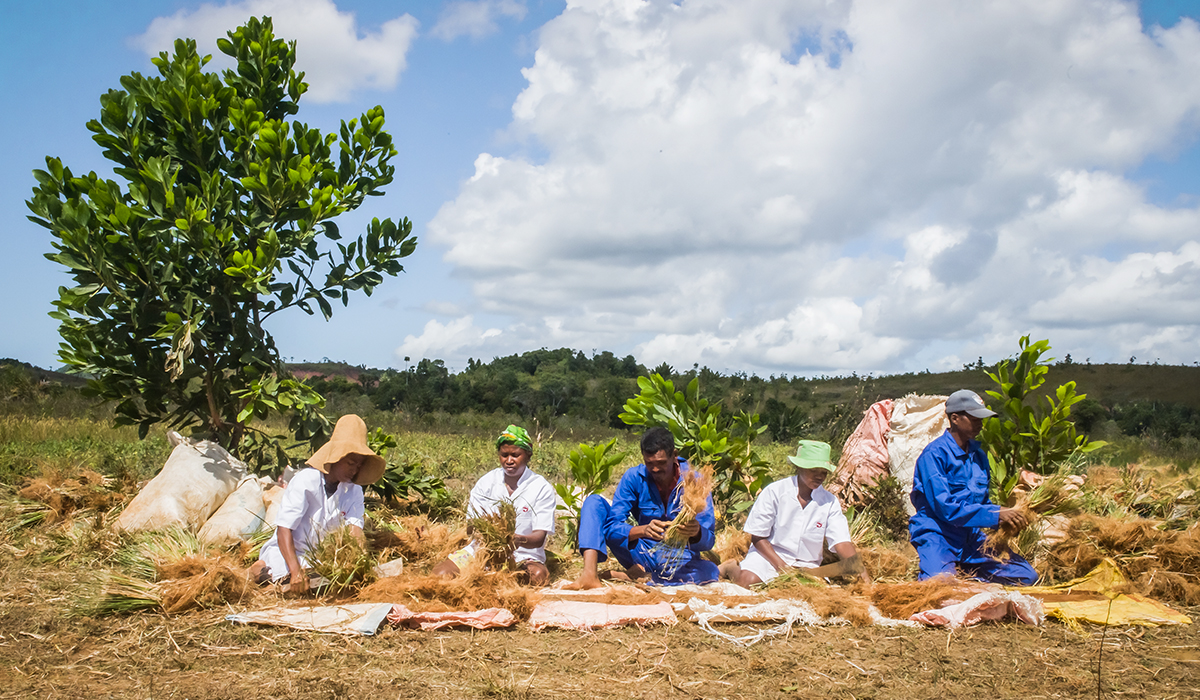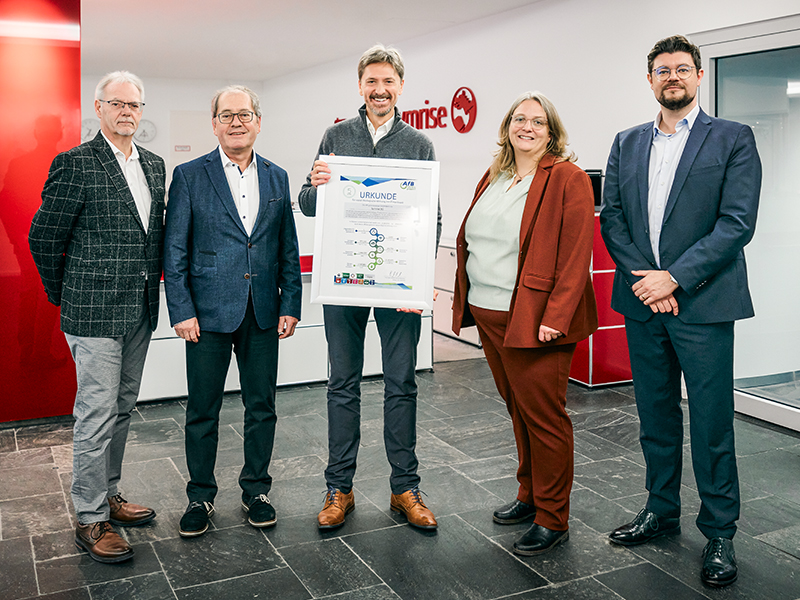Better water, more light
At the company’s location in India, Symrise joined forces with an NGO called the United Way of Chennai to provide support to the community. Both projects were part of SMETA 4-Pillar audits.
A nondescript pond is located in Sithalapakkam, a community that is just five kilometers from the location of Symrise India. The pond is called Nalla Thanni Kulam and once played a key role in the lives of the 400 families who live in the neighborhood: Residents spent their leisure time here and used the rainwater captured by the pond to drink and use at home. In recent years, though, maintenance of the pond stopped.
Symrise India, the local community and the United Way of Chennai have now taken the initiative and thoroughly cleaned Nalla Thanni Kulam with the goal of making it usable once again. The United Way of Chennai is an NGO that is active in such areas as the environment, education and health. The pond was dredged and desludged. A nature path leading around the pond was created. A play area for children was built, and benches and solar-powered lights were installed.
The project in India is just one of many that Symrise is conducting in the immediate neighborhood there. This project and several others were honored during the SMETA 4-Pillar audit that the company conducted. The abbreviation stands for Sedex Members Ethical Trade Audit. Under this program, companies commit themselves to joining the SEDEX (Supplier Ethical Data Exchange) and providing information about ethically sustainable production in the supply chain. The SMETA 4-Pillar audit focuses on four areas: labor standards, health and safety, the environment and business ethics.
Another project in India is being conducted on a heavily used road that runs through Sithalapakkam. The road was unlighted. People felt unsafe at night, and a large number of accidents occurred. Symrise supported the installation of 100 streetlights, also with the help of the United Way of Chennai. The highlight of it all: The lights are solar powered and are exceptionally sustainable as a result.

